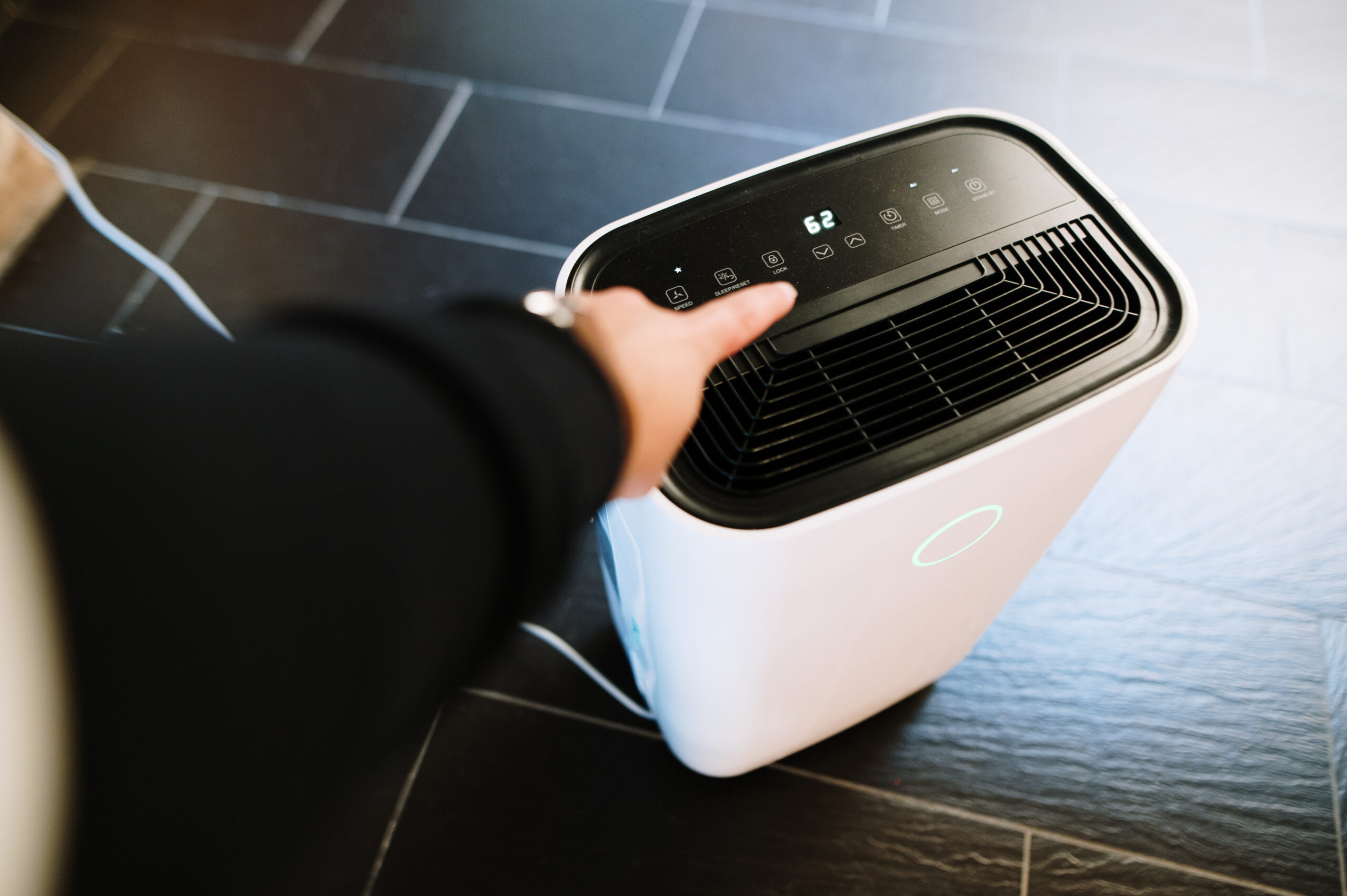Are HVAC Dehumidifiers Worth It?

The United States Environmental Protection Agency (EPA) recommends maintaining indoor humidity between 30% and 50%. Other indoor climate control experts assert that 40% to 60% is a much more manageable target. While having excessively dry indoor air is problematic, too much moisture can also take a toll on your health and the value of your Somerset, KY home. If you have condensation-covered windows, frequent problems with mold, or perpetually damp flooring and drywall, whole-house dehumidification could help. Read on to find out why an HVAC dehumidifier may be well worth the investment.
What Is a Whole-House Dehumidifier?
Whole-house dehumidifiers are integrated HVAC system accessories. Much like air scrubbers, air purifiers, and media filters, these units are usually installed on or in HVAC ducting. There are also freestanding whole-house dehumidifiers that HVAC companies install in basements.
Designed to measure indoor humidity and extract excess moisture as needed, they seamlessly support the ongoing humidity regulation provided by heat pumps, air conditioners, and condensing furnaces. However, unlike HVAC equipment that indiscriminately removes moisture during operation, whole-house dehumidifiers are sophisticated enough to create and maintain humidity balance.
Whole-House Dehumidifiers vs. Portable, Freestanding Units
Whole-house dehumidifiers regulate humidity throughout entire buildings. To compare, portable dehumidifiers merely extract excess moisture from single rooms. This does little to prevent the many serious indoor air quality (IAQ) and health concerns that result from having too much moisture indoors, especially when moisture problems aren’t confined to small areas.
While whole-house dehumidifiers cost more than portable units, they last a lot longer. They also require less maintenance and boast far more sophisticated features and functions. With their quiet operation and concealed locations, whole-home units offer comfort and convenience. Portable dehumidifiers are noisy, conspicuous, and prone to developing mold problems when ill-maintained.
How Excess Moisture Damages Properties
Perpetually wet windows and drywall are tell-tale signs of excess humidity. If left unchecked, excess humidity can result in warped flooring and sub-floors, soft drywall, blistered and peeling paint, and damaged furnishings. Given that humid building interiors offer the perfect conditions for mold and mildew, humid homes often have strong, musty, or moldering odors as well.
How High Indoor Humidity Affects Your Health
Indoor mold is a year-round concern, especially for those with asthma and allergies. Fortunately, mold and other fungi are unlikely to flourish in buildings with humidity levels at or below 60%. If you have high humidity in your home, residents may suffer from:
- Throat, skin, and respiratory irritation
- Chronic fatigue
- Recurring headaches
- Eye irritation
- Sinus and nasal congestion
One study published in the American Journal of Mental Health cites prolonged mold exposure as being a possible trigger for anxiety and depression. With the ability to prevent these and other moisture-related concerns, whole-house dehumidifiers are worth the investment.
Signs You Need Whole-House Dehumidification
Kentucky is currently recognized as the 20th most humid state in the nation. With its southeastern location, parts of Kentucky frequently see outdoor humidity levels as high as 81%, and Somerset is no exception. For many Somerset households, the limited humidity regulation supplied by their HVAC equipment isn’t enough on its own.
Humid air feels much warmer than dry air. If you run your AC or heat pump non-stop during summer but rarely get relief, too much moisture in the air could be why. Other signs of excess moisture include:
- Frequent or stubborn insect infestations
- Discolored ceilings and drywall
- Cracked or blistered furnishings
- Sleep troubles
- Rotten subfloors and other wood elements
Before investing in dehumidification equipment, you need to determine the underlying cause of excess humidity. Sometimes homes have excess humidity due to large numbers of residents, lots of steamy showers and indoor cooking projects, and insufficient ventilation. However, sudden increases in humidity may be due to fixable issues like slow and hidden leaks, foundation problems, clogged dryer vents, or poor HVAC maintenance.
How an Indoor Air Quality Assessment Can Help
You can measure your indoor humidity using a low-cost hygrometer from a local home and hardware store. You can also install a smart thermostat that offers real-time humidity monitoring. However, the most effective way to measure humidity and pinpoint the source of excess moisture is by scheduling an indoor air quality assessment and a whole-house plumbing inspection.
We help homeowners in Somerset, KY create safe, healthy homes. We offer exceptional heating, cooling, plumbing, and electrical services. You can also count on us for cutting-edge indoor air quality solutions, air duct cleaning, and preventative maintenance plans. If you have excess moisture in your home, get in touch with Jeffries Heating & Air + Plumbing today.
